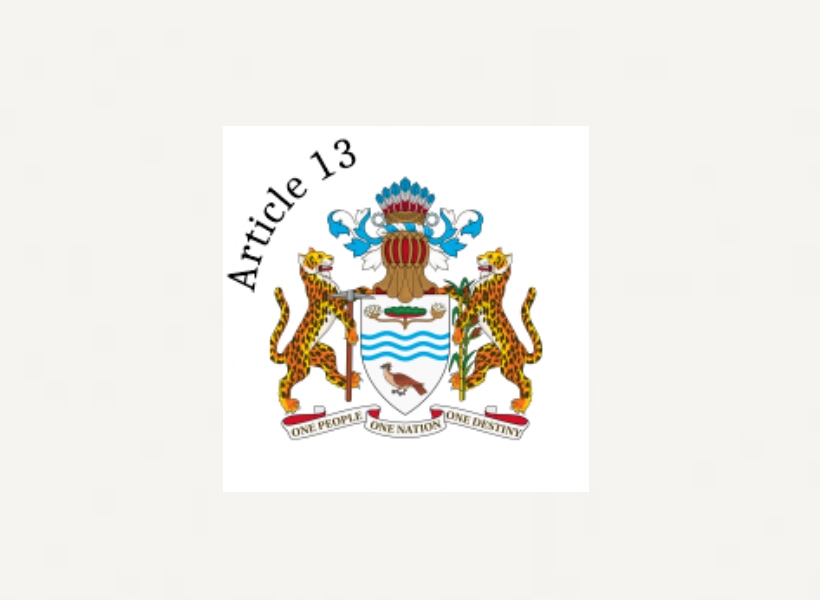Please see release below from the civil society organisation:
Article 13 has joined the campaign led by the General Workers Union (GWU) for a substantial increase in the National Minimum Wage for private sector workers in Guyana.
The current National Minimum Wage of $255 per hour, $2,040 per day, $10,200 per week or $44,200 per month was set in 2016 and became effective from January 1, 2017. Prior to that date, the National Private Sector Minimum Wage of the equivalent of $202 per day was set in 2013 and took effect from July 1, 2013.
Even as a stand-alone number the national private sector minimum confines those affected groups to a life of poverty for them and their children which cannot be remedied by any number of hampers or cash grants. Indeed, by its failure to address the problem of the minimum wage, the Government is effectively subsidising the employers who are relieved of their responsibility to pay their employees a just wage.
Article 13 wishes to make it clear: the $60,000 as the new Minimum Wage for the private sector is unacceptable. That figure was agreed upon three years ago in 2019 but never implemented. Article 13 calls for an immediate interim increase to $75,000 per month and to $100,000 per month effective January 1, 2023.
A recent Grocery/Market Basket Survey shows a cost of $117,000 per month for a family of five with no frills, no school expenses, no medical expenses and no rent. With oil production from 2020, Guyana has been reporting phenomenal growth and it is projected that the economy will grow by 47% in 2022. It is clearly unconscionable to expect or doom the workers of this country to bear the burden of the growth which benefits the shareholders of companies, merchants, private schools and hospitals and private businesses.
Guyanese – all eight hundred thousand of us – have a right to a decent living. The single fundamental right of every person in Guyana set out in Article 40 of the Constitution of Guyana is the enjoyment of “a happy, creative and productive life, free from hunger, ignorance and want…” For all the country’s recent and unprecedented economic growth, the achievement of the right – not some vague promise – of Article 40 seems light-years away, unrelated to reality.
What makes the Government’s inaction on the minimum wage so hard to understand or accept is that the public sector minimum wage is $74,900 per month or 70% above the national minimum wage. Private sector employees go to the same markets and corner shops, need to buy the same products to put food on the table and to send their children to school as do their public-sector counterparts. The two groups live in the same communities, pay the same mortgages, have the same health challenges and engage in similar expenditure patterns. It can hardly be that private sector workers need less pay than public sector employees.
Nor can it be that the private sector is unable to pay a reasonable wage to their employees. Our public companies led by the banks, and of which DDL, Banks DIH and Demerara Bank are a good barometer of the performance of the private sector as a whole, have been reporting huge increases in profits. It is unlikely that anyone would be bold enough to suggest that the public sector is in a stronger financial position than the private sector to pay its workers a proper wage.
Article 13 is aware that many private sector employers pay above the minimum wage, and in some cases substantially more. It is not those employees who we are concerned about. It is the exploitation of those employed in sectors which for all their prominence operate in the less formal arm of the economy: domestic service, the gas stations, shop owners, bars, restaurants, sawmill workers and those in the hinterland. The tens of thousands of persons who have little choice and who may not be able to find work elsewhere deserve protection from exploitation. It is the duty of the Government, the Opposition and the trade unions to make this a central focus until some fairness is achieved.
There has been a decade long collective failure on the minimum wage by the Government, the Opposition and the trade union leadership. The General Workers Union, therefore, deserves credit for its initiative on the National Private Sector Minimum Wage. Article 13 stands with the GWU.












